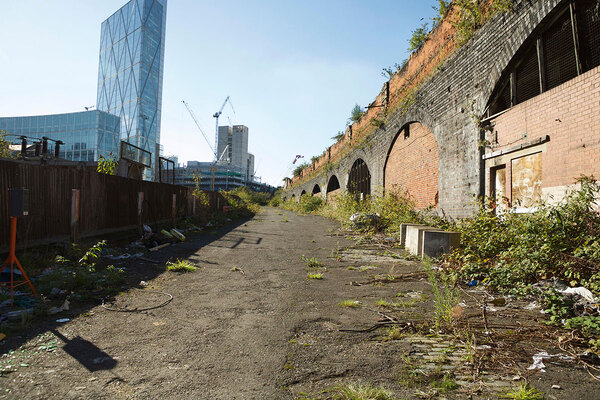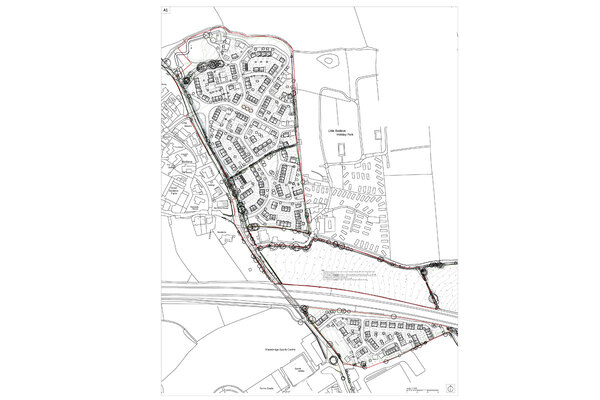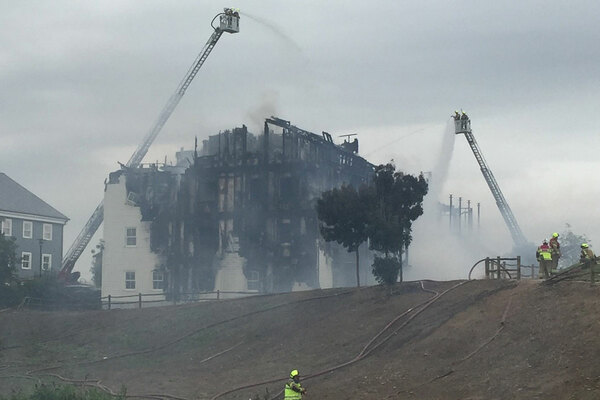You are viewing 1 of your 1 free articles
What housing associations are doing to stress-test for Brexit
With the UK’s departure from the EU looming, Luke Barratt looks at what housing associations have been doing to prepare
When it comes to Brexit, knowing what’s on the cards has been something of a doomed exercise from the start. Even as the scheduled date of departure – 29 March – draws ever closer, clarity is hard to come by.
But housing associations, like all sensible organisations, have to at least try.
Indeed this week, Fiona MacGregor, chief executive of the Regulator of Social Housing, wrote to English associations urging them to stress test the potential impacts of a no-deal Brexit and put mitigation strategies in place.
This was a reference to the Bank of England’s figures on possible Brexit outcomes.
These include, among other things, a house prices fall of up to 33% and inflation peaking at 6.5%. These changes, and many others, would have significant impacts on associations.
So what are these stress tests showing?
Inflation
Both of the Bank of England’s possible scenarios would mean the UK experiencing its highest rate of inflation since 1991, so stress-testing the impact of this could be crucial for housing associations.
Jonathan Clarke, managing director at Centrus, tells Inside Housing: “People sometimes look at inflation shocks to things like repairs costs, like if the cost of boilers goes up by 10% or so.
“We’d always tell people to look at some shock to cost in your business plan, whether that’s the pound falling and boilers being more expensive, or labour shortages, or regulatory changes. Some pain on the cost side is important.”
The precise impact, Mr Clarke says, is difficult to quantify. He adds: “We tend to say you should be looking at 10% to 20%, but we’d be looking at what people have in their base plan and if it seems a bit light compared to the others, we’d be saying that. We definitely want to be seeing a few hundred pounds per unit.”
Sarah Smith, finance director at large housing association Optivo, says that just the uncertainty around Brexit could lead to increased costs for her organisation, as contractors stockpile materials.
She says: “I know why people would want to stockpile, but the whole risk is that the productivity in the economy is going to be creating stockpiles, not growing the economy. That in itself can push up prices.
“At the moment, in our contracts we’ve got set prices, which buffers us to an extent, but you have to keep a close eye on the viability of contractors and subcontractors.”
"The whole risk is that the productivity in the economy is going to be creating stockpiles, not growing the economy" Sarah Smith, Optivo
Historically, the social housing sector has been insulated from problems with inflation by the fact that their rent levels have been linked to the Consumer Price Index (CPI), which measures inflation.
At the moment, rent levels are falling, but the government has promised to restore the link to CPI next year and allow rents to rise by CPI plus 1%.
Some in the sector, though, fear that this will not materialise. Lee Cartwright, UK head of housing at accountancy firm Mazars, tells Inside Housing: “I’ve seen organisations stress-testing that, saying even if their main cost drivers go up – their CPI assumption in their long-term financial plan is 8% – they won’t model that figure for the rent release. They’ll use a lower figure or at least stress-test a lower figure.”
Kelsey Walker, a director at Savills Housing Consultancy, also warns that building costs may end up being more inflated than CPI, so even if the government does stick to the rent settlement, associations shouldn’t assume that increased rents will cover increased costs.
House prices
Probably the most obvious of the risks to housing associations from Brexit is that house prices crash.
While social landlords’ affordable housing is not subject to the whims of the market in the same way as private sale, associations have been ramping up their activity in the private housing market for a few years now.
If the Bank of England’s doomsday scenario happens and house prices fall by 30%, social landlords that have bet heavily on the private housing market could lose out.
Housing associations have been using the money coming in from private sale to finance, or ‘cross-subsidise’, the development of affordable housing, so any decrease in the former could naturally lead to less of the latter.
“It’s not necessarily about those providers with the biggest sales programmes,” says Ms Walker. “It’s going to factor in where they are. At the point of exit, how much development have they got committed?”
With this in mind, she says, providers have been “a bit more cautious” about committing to building new market sale housing in the run-up to Brexit.
A popular mitigation measure for housing associations is to switch some of the market-focused housing to affordable housing, making it less risky.
According to Ms Smith, “mass switching” of tenure in this way is virtually unprecedented. She says that increased government grant rates would be necessary to do this and to keep development going.
Fundraising
In spite of the much-vaunted uncertainty in the market, money has kept flowing into the sector over the past couple of months.
Interest from the capital markets in social housing does not appear to have abated, with Futures Housing Group, Notting Hill Genesis, The Housing Finance Corporation (THFC) and Clarion all issuing bonds this year.
The cost of borrowing has started to increase, however, with Notting Hill Genesis achieving a comparatively unfavourable interest rate of 1.73% more expensive than the equivalent government borrowing.
A report published at the end of January by the House of Lords’ European Union Select Committee examined the future of the European Investment Bank (EIB) after Brexit.
The cost of borrowing has started to increase
Since 1973, the EIB has lent more than €118bn to infrastructure projects in the UK, including housing. Notably, this has included £1.5bn for THFC.
In evidence submitted to the committee, Unite the Union wrote that losing access to EIB funding “could stymie affordable housing development”, a view echoed by the East of England European Partnership.
Piers Williamson, chief executive of THFC, told the committee that the EIB provides “the cheapest long-term funding that one can get”.
The loss of this source of funding is not exactly something housing associations can mitigate or control but it will need to be factored into future business plans.
Wild cards
Outside the mainstream concerns, individual housing associations have, as always, their own specific needs. When it comes to Brexit, this is no different.
For example, Ms Smith explains that because Optivo has homes in Kent, any disruption in the county could cause problems.
If the UK does leave without a deal, the Department for Transport fears that disruption at the border could lead to a huge increase in traffic on the M20, which runs through Kent. This, obviously, could make it harder for Optivo’s repairs teams to reach residents.
"We’ve got overnight funds that sit in Ireland. We’ll be bringing them home to sit in London or wherever, just in case there are any problems" Carol Matthews, Riverside
Ms Smith tells Inside Housing: “We absolutely want to maintain the service to our residents. That’s critical. It might take us a little bit longer to get around the county but it’s not a case of shutting down at all. The focus has to be to maintain the service.”
Carol Matthews, chief executive of Riverside, explains an issue specific to that housing association, saying: “We’ve got overnight funds that sit in Ireland. We’ll be bringing them home to sit in London or wherever, just in case there are any problems where the money markets freeze and we can’t get access to overnight funds. It’s an in extremis measure, but it’s about making sure that we can get to money.”
These two examples show the importance of creative thinking around the impact of Brexit and all possible scenarios.
As has perhaps become clear, stress-testing is not all prophecies and future-gazing. It’s also about knowing what to do if the worst does happen and when to do it.
Ms Walker tells Inside Housing: “To some extent, stress-testing isn’t about second-guessing the market. It’s about knowing how much rates have to change before you trigger your mitigation.”
If stress-testing is done right, then, housing associations should have a plan for however the cards fall.
Read more about Brexit
Brexit and the social housing sector: the key risks As the tortuous process of exiting the European Union approaches its denouement, the country remains in a state of uncertainty about what exactly is going to happen. Peter Apps recaps the key risks to the social housing sector
Downturn: why is L&Q cutting its surplus in half and what does it mean for the sector After L&Q revealed it is likely to cut its surplus by £158m this year, Peter Apps asks what this means for the financial model which has defined the housing association sector since 2010
What housing associations are doing to stress-test for Brexit With the UK’s departure from the EU looming, Luke Barratt looks at what housing associations have been doing to prepare
Regulator writes to housing associations with no-deal Brexit warning The regulator has issued a warning to housing associations over the threat of a no-deal Brexit, outlining key risk areas including shortages of crucial materials, a housing market crash and difficulties accessing ‘business-critical’ data
Sector draws up contingency plans for no-deal Brexit The country’s largest housing associations are putting in place contingency plans to protect the future of their organisations
How would the sector cope with a no-deal Brexit? As uncertainty around Brexit mounts and a no-deal looms, Inside Housing asks what it could mean for the housing sector
Current grant system won’t work in a falling market The government needs to think again about grant to prevent housing association development from collapsing in a falling market, writes Matthew Bailes.
S&P would downgrade half its rated housing associations after no-deal Brexit The credit ratings agency Standard & Poor’s (S&P) has said it will downgrade associations it rates if the UK leaves the European Union without a deal
Click here for all our Brexit news to date












